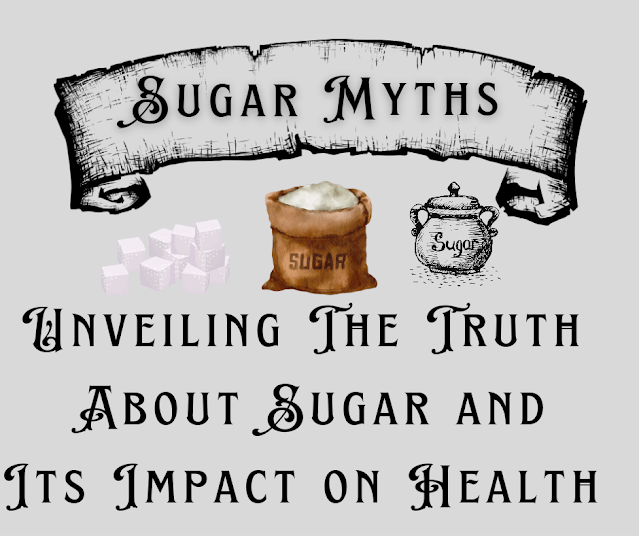Introduction
Sugar has long been a topic of controversy in the realm of nutrition, with conflicting information and misconceptions abound. From claims that sugar is the root cause of various health issues to assertions that certain types of sugar are healthier than others, separating fact from fiction can be challenging. In this article, we will break down the myths and facts about sugar and its impact on health, empowering you to make informed choices about your diet and well-being.
Myth: All Sugars Are Created Equal
One common misconception is that all sugars are created equal and have the same impact on health. In reality, sugars can be classified into two main categories: naturally occurring sugars and added sugars. Naturally occurring sugars are found naturally in foods such as fruits, vegetables, and dairy products, while added sugars are sugars and syrups that are added to foods during processing or preparation.
Fact: Not All Sugars Are Created Equal
While both naturally occurring and added sugars contain the same basic chemical structure, they differ in terms of how they are metabolized by the body and their overall impact on health. Naturally occurring sugars, found in whole foods such as fruits and vegetables, are accompanied by essential nutrients, fiber, and phytonutrients that provide numerous health benefits. In contrast, added sugars, commonly found in processed foods and beverages, contribute empty calories without providing any nutritional value. Excessive consumption of added sugars has been linked to an increased risk of obesity, type 2 diabetes, heart disease, and other health issues.
Myth: Cutting Out Sugar Completely Is Necessary for Optimal Health
Another common misconception is that cutting out sugar completely is necessary for optimal health. While reducing intake of added sugars is certainly beneficial for health, particularly for individuals who consume excessive amounts of sugar, eliminating sugar entirely from your diet is neither practical nor sustainable.
Fact: Moderation and Balance Are Key
Rather than aiming for complete elimination of sugar, the key is to consume sugar in moderation and within the context of a balanced diet. Focusing on whole, minimally processed foods that are naturally low in added sugars, such as fruits, vegetables, whole grains, lean proteins, and healthy fats, can help you maintain optimal health while still enjoying the occasional treat.
Myth: Artificial Sweeteners Are a Healthier Alternative to Sugar
Artificial sweeteners, such as aspartame, sucralose, and saccharin, are often promoted as healthier alternatives to sugar due to their low calorie content. However, there is ongoing debate and controversy surrounding the safety and long-term health effects of artificial sweeteners.
Fact: Artificial Sweeteners May Have Risks and Drawbacks
While artificial sweeteners are generally recognized as safe for consumption by regulatory agencies such as the FDA, some studies have raised concerns about their potential negative impact on health. Research suggests that artificial sweeteners may disrupt gut microbiota, increase cravings for sweet foods, and contribute to metabolic dysregulation. Additionally, some individuals may experience adverse reactions or sensitivities to certain artificial sweeteners.
Myth: Sugar Causes Hyperactivity in Children
One of the most persistent myths about sugar is that it causes hyperactivity in children. Parents and caregivers often attribute children's behavior, such as increased energy levels or restlessness, to sugar consumption, particularly after consuming sugary treats or beverages.
Fact: Sugar Does Not Cause Hyperactivity
Numerous scientific studies have debunked the myth that sugar causes hyperactivity in children. While sugar can temporarily increase energy levels and blood sugar levels, there is no conclusive evidence to support the notion that sugar directly causes hyperactivity or attention deficit hyperactivity disorder (ADHD) in children. Other factors, such as genetics, environment, and individual differences in sensitivity to sugar, may play a role in children's behavior.
Conclusion
In conclusion, separating fact from fiction when it comes to sugar and its impact on health is essential for making informed dietary choices and promoting overall well-being. While naturally occurring sugars found in whole foods provide essential nutrients and health benefits, added sugars found in processed foods and beverages should be consumed in moderation. Rather than demonizing sugar or seeking to eliminate it entirely from our diets, focusing on moderation, balance, and mindful eating is key. By prioritizing whole, nutrient-dense foods and minimizing intake of added sugars, we can enjoy the pleasures of sugar in a way that supports our health and vitality.


